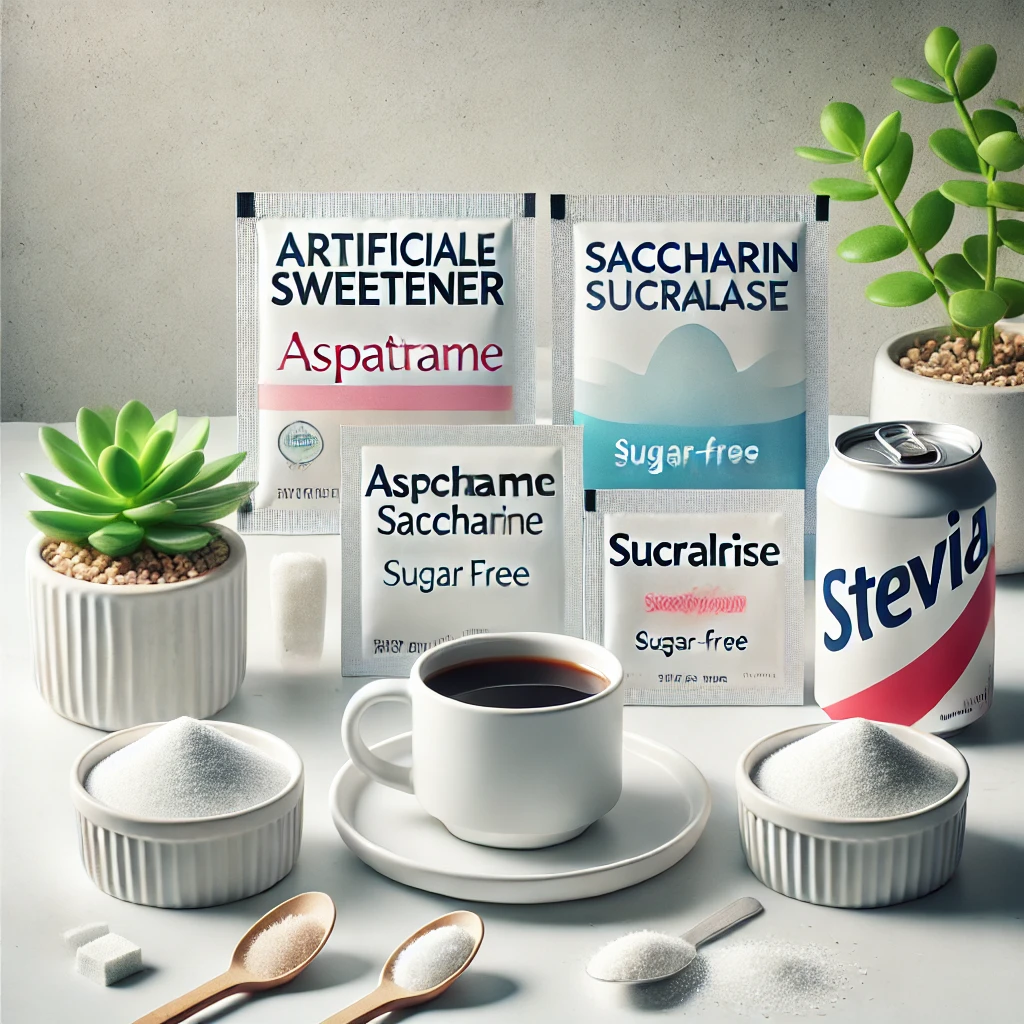Artificial Sweeteners: Sweet Fix or Something to Worry About?

Let’s talk about artificial sweeteners—those little magic ingredients that make your favorite diet soda or sugar-free treats taste sweet without all the calories. They’re everywhere these days, from gum and cookies to toothpaste. But are they as great as they sound, or is there more to the story? Let’s dive in.
What Are Artificial Sweeteners, Anyway?
Basically, artificial sweeteners are sugar substitutes that taste super sweet but have way fewer calories. Some of the big players include:
Aspartame (you’ve seen it in Equal or NutraSweet)
Saccharin (hello, Sweet’N Low)
Sucralose (yep, that’s Splenda)
Stevia (the “natural” one that’s still processed)
These bad boys are often hundreds or even thousands of times sweeter than sugar. Translation? You only need a teeny-tiny bit to sweeten up your drink or dessert.
Why Do People Love Them?
- Fewer Calories: If you’re watching your weight, they’re a win. Sweet taste, no guilt.
- Diabetes-Friendly: They don’t mess with your blood sugar levels, so they’re a safer option for people with diabetes.
- Tooth-Friendly: Unlike sugar, they won’t wreck your teeth.
The Controversy Zone
Not everyone’s convinced these sweeteners are harmless. Here’s what people are worried about:
- Cancer Scares: Back in the 70s, some studies linked saccharin to cancer in lab rats. That freaked people out, but later research showed it’s not really an issue for humans. The FDA and WHO say these sweeteners are safe as long as you don’t go overboard.
- Gut Health Drama: Some studies suggest artificial sweeteners could mess with your gut bacteria. That could affect digestion and metabolism, but the science is still up in the air.
- Cravings Gone Wild: Ever notice how diet soda doesn’t always kill your sugar cravings? Some say these sweeteners might actually make you crave more sweets.
- Headaches and Weird Reactions: A few people claim they get headaches or dizziness from sweeteners like aspartame. It’s not super common, but it’s worth noting.
Are They Safe?
Short answer: Yes, in moderation. The FDA sets safe daily limits for each sweetener. For example, with aspartame, you’d need to drink about 18 cans of diet soda in one day to hit the limit. So, unless you’re guzzling diet drinks like it’s your job, you’re probably fine.
What About “Natural” Sweeteners?
If the word “artificial” makes you nervous, there are options like stevia or monk fruit. They’re often marketed as more natural, but they still go through processing. Plus, they have their own pros and cons.
So, Should You Use Them?
That’s totally up to you. If you’re trying to cut back on sugar, they can be a helpful tool. But don’t treat them as a free pass to eat all the “sugar-free” snacks you want. Balance is key, and whole, unprocessed foods should still be the foundation of your diet.
The Bottom Line
Artificial sweeteners can be part of a healthy lifestyle, but they’re not a magic fix. Stay informed, listen to your body, and keep things in moderation. After all, life’s about enjoying the sweetness—without overdoing it.
What’s your take on artificial sweeteners? Love them, hate them, or somewhere in between? Let me know in the comments!
About The Author
Tufi
I’m a wife, mom to toddler and research Assistant Professor of Neuroscience who is passionate about fitness and healthy lifestyle. My aim is to create a positive and fun experience for others, as well as using the best of my knowledge and experience to help them achieve their goals.
This is my blog, where I share my knowledge about fitness, lifestyle and healthy living. Follow me as I share my fitness journey, opinions and motivate you to become the best version of yourself.
